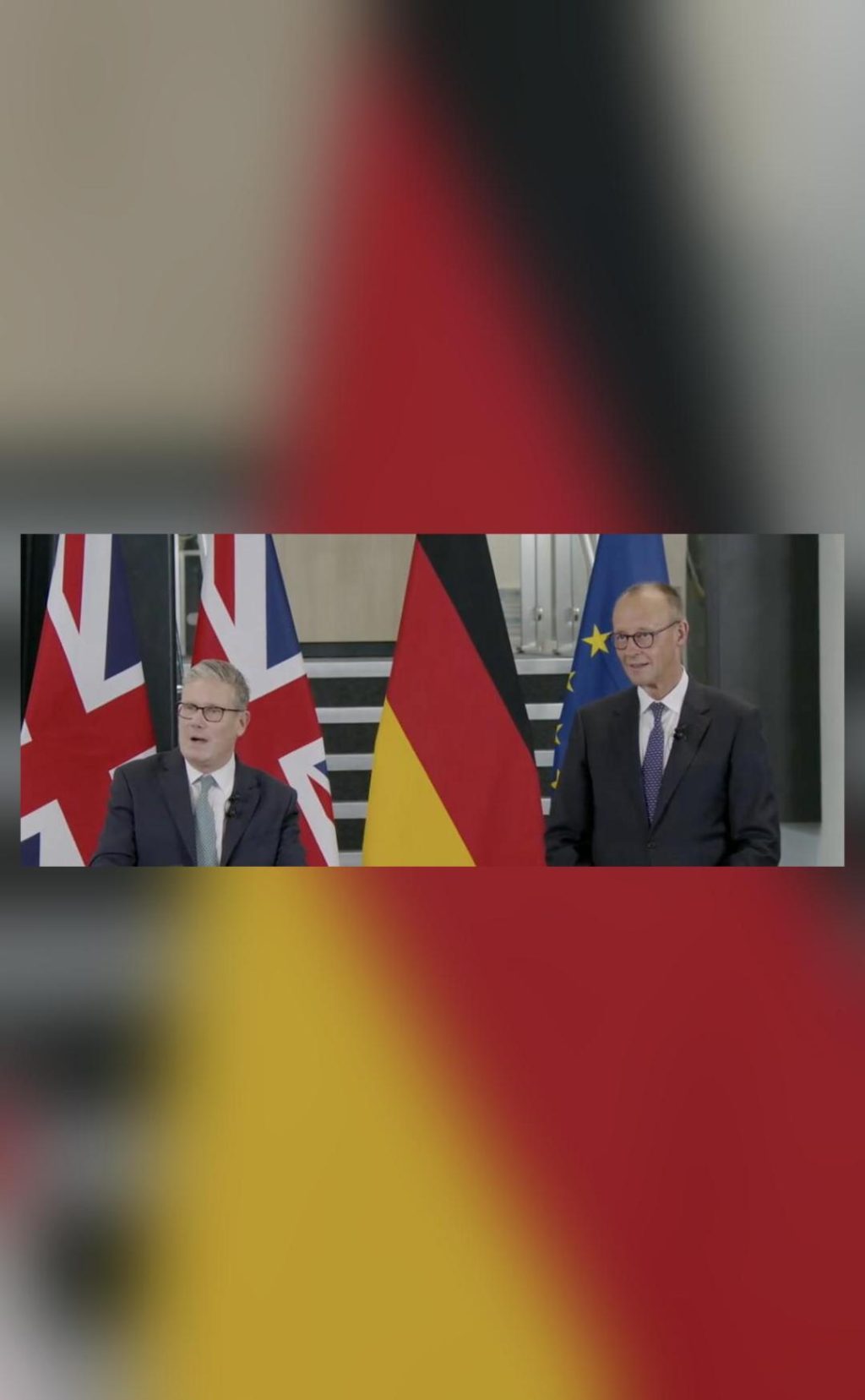
UK, Germany Sign Treaty to Enhance Defence & Migration Cooperation
In a significant move to strengthen ties and address common challenges, British Prime Minister Keir Starmer and German Chancellor Friedrich Merz signed a treaty on Thursday, marking a major milestone in the countries’ relationship. Eighty years have passed since the end of World War II, and this pact aims to boost defence and economic cooperation, as well as jointly tackle migrant smuggling.
The treaty, signed in Berlin, represents a significant step forward in deepening the long-standing friendship between the UK and Germany. It comes at a time when both nations are facing various threats and challenges, from economic uncertainty to global security concerns. The agreement is a testament to the enduring bond between the two countries and their shared commitment to promoting peace, stability, and prosperity.
One of the key areas of cooperation highlighted in the treaty is defence. The two nations have agreed to enhance their defence ties, with a focus on joint military exercises, intelligence sharing, and capacity building. This will enable them to better respond to emerging security threats and work together more effectively to address global challenges.
The treaty also includes provisions for strengthening economic cooperation. The UK and Germany aim to boost trade and investment between the two countries, with a focus on key sectors such as technology, manufacturing, and services. This will help to create new opportunities for businesses and individuals, while also driving economic growth and prosperity.
In addition to defence and economic cooperation, the treaty addresses the important issue of migrant smuggling. The two nations have agreed to work together to tackle this issue, including sharing intelligence and best practices, and cooperating on law enforcement and border control.
Another significant aspect of the treaty is the plan to establish a new direct rail connection between the UK and Germany. This will improve connectivity and facilitate the movement of people, goods, and services between the two countries. The aim is to boost economic and people-to-people ties, while also reducing travel times and increasing efficiency.
The signing of the treaty marks an important milestone in the UK-Germany relationship, and reflects the strong bond between the two nations. The agreement is a testament to the enduring friendship and shared values of the UK and Germany, and will help to drive cooperation and progress in a range of areas.
In a statement following the signing of the treaty, Prime Minister Keir Starmer said: “Today, we are marking a major milestone in our relationship with Germany. This treaty is a testament to the strength and depth of our friendship, and our commitment to working together to address the challenges we face. Whether it’s on defence, economy, or migration, we are stronger together, and I am confident that this treaty will pave the way for continued cooperation and progress in the years to come.”
Chancellor Friedrich Merz also welcomed the signing of the treaty, saying: “The UK and Germany share a long history of cooperation and friendship, and today’s treaty is a significant step forward in deepening our ties. We are committed to working together to address the challenges we face, and to promoting peace, stability, and prosperity in our region and around the world.”
In conclusion, the UK-Germany treaty is a significant development in the countries’ relationship, and reflects their shared commitment to cooperation and progress. The agreement will help to strengthen defence and economic ties, while also addressing the important issue of migrant smuggling. As the UK and Germany continue to navigate the complexities of the 21st century, this treaty will play a crucial role in promoting peace, stability, and prosperity for generations to come.



